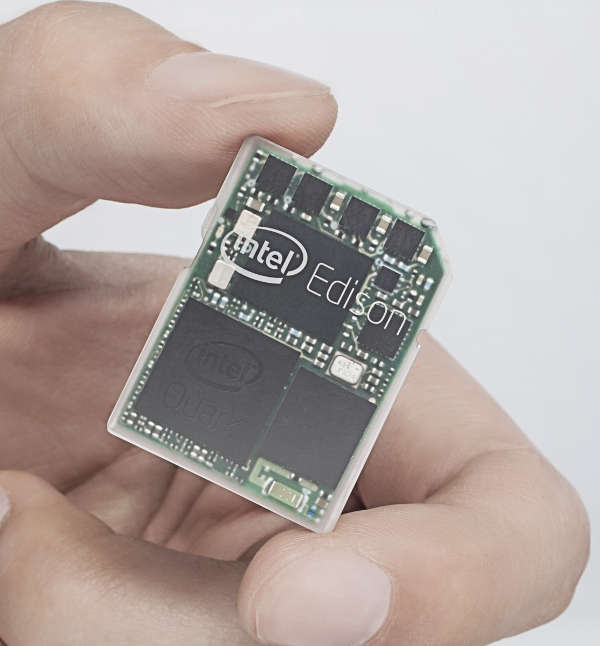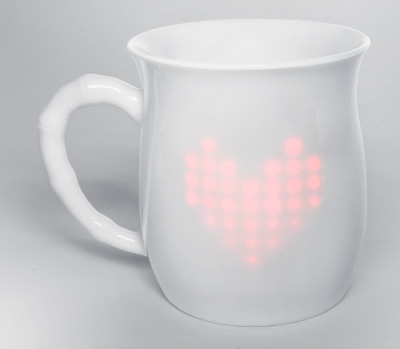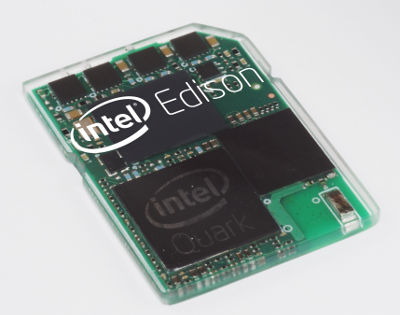| Edison Is A PC On An SD Card |
| Written by Harry Fairhead | |||
| Tuesday, 14 January 2014 | |||
|
Intel announced Edison at this year's CES and it looks as revolutionary as only hardware can be. This is a system on a chip, that is tiny, powerful and cheap. It brings desktop power and software to embedded devices and the Internet Of Things. One of the confusions of the current age is that we need small operating systems for mobile and embedded hardware because the processors and resources are so feeble. Android rather than Linux; iOS rather than OSX Windows; Phone rather than Windows Desktop and so on. It splits the programming world up and creates lots and lots of duplicate effort. There is the opinion that if we just had the patience to wait then the hardware would grow up to meet the software and we could just use one thing for everything.
Edison is another step towards making mobile and embedded processors more like desktop processors. It uses a 400MHz Intel Quark processor which has two cores and is essentially a system on a chip. In its basic configuration one of its cores is a microcontroller that runs a real time operating system providing interfaces to the I/O and the other is a standard x86 that runs a standard operating system - Linux in the first instance. The board also contains flash storage. The dual processor approach is a bit messy from a theory point of view, but it is very practical. The x86 can look after the complex protocols such as WiFi and Bluetooth and the microcontroller can do timing and digital and analog I/O. If you think you have heard this idea before then you are correct as the same Quark processor is at the heart of the Intel Galileo microcontroller board, which is very similar to the Edision but larger and Arduino pin compatible. The Galileo currently retails at around $60 and the Edison should be considerably cheaper when it ships later in the year. The key feature of the Edison is its SD form factor. It can be programmed by plugging it into a PC SD slot - which makes it very easy to get started with. Of course, it all depends what software is made available but given that the Galileo is supported by the standard Arduino software this seems like a good guess. At CES the example provided was the Mimo Baby Monitor which incorporated an Edision into the baby's clothing to send temperature, breathing and motion data to a base station. With WiFi and Bluetooth built in this could be the breakthrough that Intel needs to recover market share from the the AMTEL based Arduino, ARM based Raspberry Pi and the many Pic based devices.
The Edison can be built into every day objects to show the baby's data
Intel seem to be pushing the angle that the the Edison could be used to realize the idea of wearable computing, but it seems to be far more revolutionary than just wearables. The fact that suddenly WiFi and Bluetooth are cheap enough and low power enough to be built into just about any device, no matter how trivial, is a threshold we are about to cross.
More InformationRelated ArticlesIntel Inside - The Arduino Galileo ArduinoDroid - An Arduino IDE for Android
To be informed about new articles on I Programmer, install the I Programmer Toolbar, subscribe to the RSS feed, follow us on, Twitter, Facebook, Google+ or Linkedin, or sign up for our weekly newsletter.
Comments
or email your comment to: comments@i-programmer.info
|
|||
| Last Updated ( Tuesday, 14 January 2014 ) |





